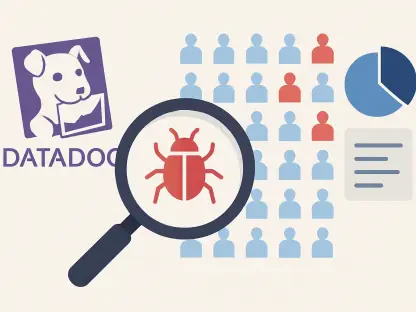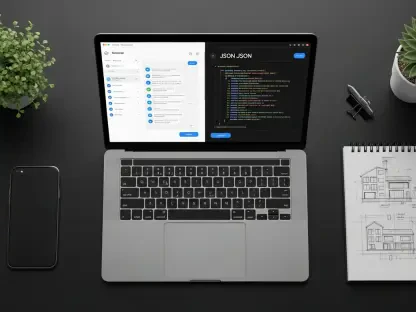In the rapidly evolving landscape of digital transformation, enterprises are increasingly adopting AI and Kubernetes to stay competitive. WSO2 has responded to these trends with significant updates to its API management products, designed to enhance AI API management, support Kubernetes-native environments, boost developer productivity, and ensure robust security and access control. These updates, released as open-source software, include the latest versions of WSO2 API Manager and WSO2 API Platform for Kubernetes (WSO2 APK). The continuous enhancements aim to provide enterprises with the tools they need to manage APIs effectively and future-proof their deployments for a seamless digital evolution.
Enhancements in AI API Management
As AI becomes more integral to enterprise operations, the need for effective management of AI services has grown. WSO2 addresses this with the introduction of the Egress API Management function. This feature provides comprehensive lifecycle management and governance of AI APIs from leading service providers such as OpenAI, Mistral AI, and Microsoft Azure OpenAI. By extending the capabilities of both WSO2 API Gateway and WSO2 APK Gateway, developers can now manage internal and external AI services more efficiently as APIs.
The enhanced egress gateway features ensure secure and efficient access to AI models. By enforcing policies, automating responses, and controlling outbound traffic, these features help reduce costs and improve performance. This strategic enhancement allows enterprises to maintain visibility and control over their AI services, ensuring they can leverage AI technologies effectively and securely. As a result, organizations can integrate sophisticated AI functionalities seamlessly into their workflows, driving innovation and efficiency in various business processes.
In addition to operational benefits, the Egress API Management function provides a robust framework for governance and compliance. With the ability to monitor and manage AI API usage across different environments, enterprises can ensure adherence to regulatory requirements and corporate policies. This comprehensive lifecycle management capability allows businesses to optimize their AI deployments, ensuring that they derive maximum value while maintaining high standards of security and performance.
Kubernetes-Native API Management
WSO2 has significantly bolstered its support for Kubernetes-based environments with several new developments. The updated WSO2 API Microgateway acts as a decentralized, cloud-native gateway for microservices. This aligns with the latest WSO2 API Manager release, enhancing scalability while maintaining robust governance, reliability, and security. This update is crucial for enterprises looking to manage their microservices architecture efficiently within Kubernetes environments.
Additionally, the introduction of gRPC API support for WSO2 APK Gateway integrates seamlessly with Kubernetes environments. By adhering to the Kubernetes Gateway API specification, developers gain increased control over gRPC services. New traffic filters for HTTP routes in WSO2 APK Gateway further enhance flexibility in routing and transforming HTTP traffic, contributing to optimal traffic management and a better developer experience. These updates empower organizations to leverage the full potential of Kubernetes for dynamic, scalable API management.
The WSO2 API Microgateway and APK Gateway enhancements also promote efficient workload distribution and service discovery. By decentralizing gateway functions, enterprises can achieve lower latency and higher resilience, ensuring that services remain available and performant even under varying loads. This decentralized approach is particularly beneficial for microservices architectures, where the ability to scale and manage services independently is essential for operational agility and reliability.
Productivity Boost for Developers
To enhance developer productivity, WSO2 has introduced several new features in its latest releases. One key feature is the support for subscription rate limit policies in WSO2 APK, a functionality already available in WSO2 API Manager. This allows API providers to set usage quotas and limits for API consumers, enabling them to subscribe to specific tiers with predetermined API request limits. This feature helps manage API usage effectively, ensuring fair access and preventing overuse. It streamlines the development process by providing clear guidelines and controls on API consumption.
Another significant enhancement is the unified control plane in WSO2 API Manager, which also manages WSO2 APK. This allows developers to search for APIs using content from API definition files directly in the Developer Portal and Publisher Portal. This improvement in API discoverability and usability streamlines the development process, making it easier for developers to find and use the APIs they need. By simplifying the API search and discovery process, WSO2 enables developers to focus on innovation and application development, rather than spending time navigating complex API ecosystems.
These enhancements contribute to a more efficient and collaborative development environment. With better tools for API management and discovery, developers can work more effectively, reducing time-to-market for new features and applications. This increased productivity not only benefits individual developers but also has a positive impact on overall project timelines and the ability of enterprises to respond quickly to market demands and technological advancements.
Enhanced Security and Access Control
Security is a paramount concern for many organizations, and WSO2 has addressed this with several critical updates. The control plane in WSO2 API Manager now supports configurable mutual TLS (mTLS) authentication settings for different environments. This ensures that API consumers connect with an appropriate level of security based on production or sandbox requirements, enhancing overall security. This configurable security model allows organizations to tailor their security approaches according to specific operational contexts, ensuring a balanced mix of protection and flexibility.
Further improving security, WSO2 has added personal access token (PAT) support. This allows for secure, time-limited authentication to access system APIs without exposing usernames and passwords. This feature is particularly useful for CI/CD pipelines, automated scripts, and local development environments, offering a secure substitute for traditional password usage. These enhancements ensure that enterprises can maintain robust security and access control over their API deployments. By minimizing the risk of credential exposure, organizations can safeguard their API infrastructure and protect sensitive data from unauthorized access.
In addition, the security updates in WSO2’s API management products include enhanced monitoring and alerting capabilities. By providing real-time insights into API usage and security events, these tools enable organizations to detect and respond to potential threats promptly. This proactive approach to security management helps prevent breaches and ensures that any vulnerabilities are addressed swiftly, maintaining the integrity and resilience of the API ecosystem.
Consolidation and Future Proofing
In response to the rapid adoption of AI and Kubernetes, WSO2’s updates aim to consolidate API management capabilities while providing robust tools that future-proof deployments. WSO2 API Manager, which facilitates over 60 trillion transactions annually, continues to be an industry leader in full lifecycle API management. It offers significant security and operational reliability, ensuring that enterprises can manage their APIs effectively. By delivering consistent performance and reliability, WSO2 API Manager supports the growing demands of modern enterprises, enabling them to build and scale digital experiences confidently.
Meanwhile, WSO2 APK, specifically engineered for Kubernetes, leverages the platform’s inherent strengths to offer state-of-the-art API management solutions. The integrated offerings provide a flexible and scalable framework suitable for varied deployment preferences, whether cloud, on-premises, or hybrid models. WSO2 Subscription ensures ongoing support with continuous delivery of bug fixes, security updates, and performance enhancements, complemented by 24×7 technical support. This makes it an attractive proposition for enterprises aiming to stay competitive through innovative digital experiences.
These consolidated and future-proofed API management solutions enable organizations to adapt quickly to technological shifts and market demands. By providing robust, adaptable tools, WSO2 supports enterprises in their digital transformation journeys, helping them to innovate and deliver value at scale. The commitment to open-source development and continuous improvement also ensures that WSO2 products remain aligned with industry best practices and emerging trends, making them a reliable choice for enterprises looking to build resilient, future-ready API ecosystems.
Conclusion
In today’s fast-paced world of digital transformation, businesses are increasingly leveraging AI and Kubernetes to remain competitive. Recognizing these trends, WSO2 has introduced key updates to its API management products to cater to this evolving landscape. These updates are tailored to advance AI API management, integrate seamlessly with Kubernetes-native systems, elevate developer efficiency, and ensure strong security and access control measures. The enhancements have been released as open-source software, featuring the latest versions of WSO2 API Manager and WSO2 API Platform for Kubernetes (WSO2 APK). The goal of these continuous improvements is to equip enterprises with the necessary tools to effectively manage their APIs and to future-proof their systems, enabling a smooth digital progression. Esteemed for their adaptability, these updated products aim to support enterprises in maintaining a competitive edge while fostering innovation and ensuring security in the realm of digital transformation.









